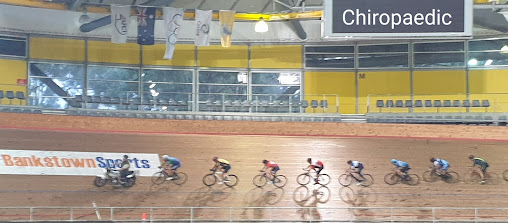If you live in Sydney, cycling is difficult to avoid. But as anyone new to the city can attest, hopping back on a saddle for the first time in years to weave through the narrow busy streets can be a daunting prospect.
Luckily, the old saying holds true: it really is like learning to ride a bike. Many people will have experienced the amazing and long-lasting memory for skills that is often known as "muscle memory".
Muscle memory exists in all kinds of different skills, from sewing, to dancing, to gaming. What is muscle memory? Does it involve changes in structure? What is happening in the brain?
What is Muscle Memory?
Even the simplest of everyday tasks involves a complex sequence of tensing and relaxing many different muscles.
For most of these actions we have had repeated practice over our lifetime, therefore they can be performed faster, more smoothly and more accurately.
Over time, with continual practice, actions as complicated as riding a bike, sewing, or even playing a musical instrument, can be performed almost automatically without thought.
We often talk about these skills as being held in muscle memory, but this term is really misleading. Although certain skills, like cycling or perfecting a golf swing, might require the strengthening of certain muscles, the processes that are important for learning and memory of new skills occur mainly in the brain, not in the muscles.
Changes that occur in the brain during skill learning and memory alter the information that the brain sends out to the muscles, thereby changing the movements that are produced.
Skill learning and memory are clearly quite different from other forms of memory. It is thought that human memory is made up of multiple different systems that can all operate almost independently of each other (Squire, L. R. & Zola, S. M. Structure and function of declarative and non-declarative memory systems. Proc. Natl. Acad. Sci. 93, 13515–13522 (1996).
We can have memories for facts, for example London is the capital of England, but we may not be able to remember when or where we originally learned this fact. Likewise, you might remember having a conversation with a friend, but not remember what the conversation was about.
This is because "declarative memory"; the memory for facts, is though to be a different system, controlled by different brain mechanisms, than the one used for memory of life events or "episodic memory"
Memory for skills can be thought of as another distinct system. You may be able to ride a bike perfectly, but that doesn’t mean you could explain to someone the exact sequence of movements needed in order to cycle. You may not even remember when or where you learned this skill.
Studies of patients with amnesia and other memory disorders have demonstrated how these different memory systems can operate separately.
The findings demonstrate an important aspect of skill memory; that it can be stored without any conscious awareness, and the skilled actions can be performed almost automatically. (Milner, B. Les troubles de la mémoire accompagnant des lésions hippocampiques bilatérales. Physiol. Hippocampe Cent. Natl. Rech. Sci. pp. 257–272 (1962).
It therefore becomes apparent, returning to the Velodrome Track to ride after a 16 year hiatus, that the brain never forgets the skills required to ride a bike and do so smoothly and with precision around the corners and on the banks of the track.
Why is correct spinal motion so vital to this process?
Correct spinal motion, involving the movement of the spinal bones and associated tissues and proper posture, have an influence on the brain and its function, thus affecting overall health.
This is because many brain functions have been linked to movement feedback and the maintenance of our upright posture against gravity.
Increased "body stress signals" such as a strain in the spine while riding, or an injury from falling off the bike, can lead to a range of deleterious effects in the brain, the nervous system and the body, more generally.
Body awareness messages or "Proprioception" can be thought of as an essential nutrient for the brain. It is essential for perceptual awareness and interaction with our environment.
It follows then, that correct, healthy function of the body and joints, will lead to normal nerve system communication, which really means reduced "body stress signals" and increased levels of "body awareness" messages. (Seaman D. R. JMPT 1998; 21(4).
It is for this reason that Chiropractic and Neuromuscular Rehabilitation are so vital to healthy brain function and memory.
Dr Vivienne Brimelow
If you would like further information and learn how Chiropractic and Neuromuscular Rehabilitation can assist you on your health journey, please contact us: info@chiropaedic.com.au or 0414 570 621



No comments:
Post a Comment